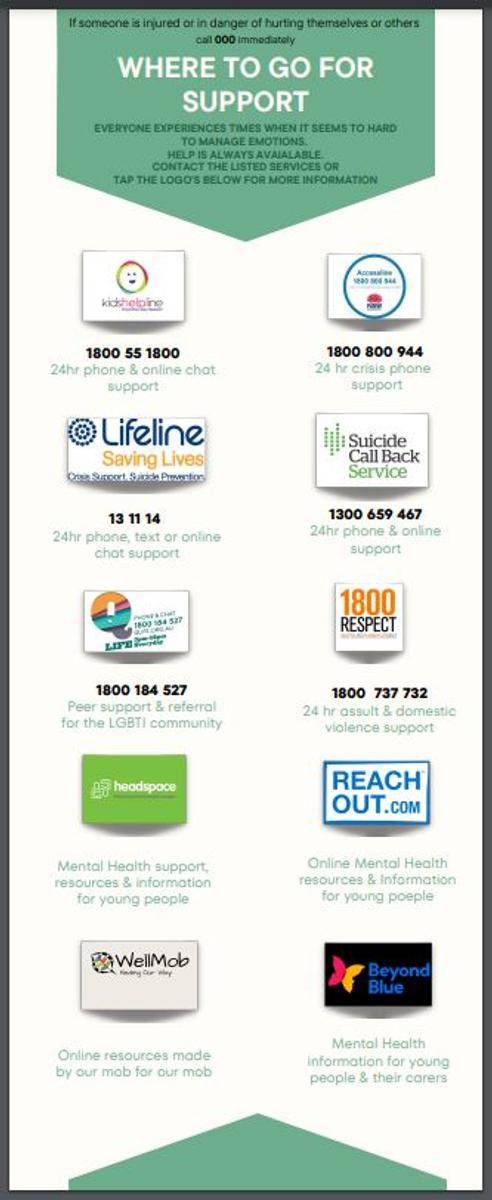Wellbeing Matters

The holidays can be a tricky time for some with changes to routine and structure. It is important for us to have some down time to rest, relax and reflect.
Rest and quality sleep is linked to enhanced mental health. Some tips for getting a good night’s sleep include:
- Be consistent with your bedtime. Going to bed at a similar time even in the holidays reinforces to our bodies that it's time to wind down.
- Set a digital curfew. Try to avoid screens for at least 30 minutes or longer before bedtime. The screen light and apps are designed to trigger hormones in your brain that keep you alert which is not exactly ideal for getting some sleep.
- Have a caffeine cut-off point. Stimulants such as caffeine can keep your body and mind alert up to seven hours after they are consumed. Everyone is different so find your caffeine ‘cut off’ point and stick to it.
- Make your bedroom your sleeping sanctuary. Keep your bed for sleeping only. No devices, just your sleep zone.
- Get out of bed if you can’t sleep. If after a while you find that you haven’t been able to go to sleep, don’t stress, it will only make matters worse. Get up and do a calming activity like reading a book or journaling. When you get tired, try going back to bed.
During the holidays we encourage parents to find some time to check in with their children and see how they are travelling emotionally. If your child indicates that they may be struggling you may like to engage with your GP, call the Mental Health Accessline on 1800 800 944 or present to your local emergency department.
I would like to wish all of our school community a happy and safe holiday. Don’t be afraid to ask for help or support.
Keep safe.
NSW Mental Health Access Line
1800 011 511
Access line is available to anyone living in the Murrumbidgee Local Health District region. It is staffed by mental health professionals and open 7 days a week, 24 hours a day.
The service can provide advice and assistance to:
- People experiencing issues with their own mental health or drug and/or alcohol use.
- Carers and people supporting loved ones with mental health and/or drug or alcohol issues.
- People who are worried about the mental health of someone they know.
- Health Professionals (including GPs, service providers and emergency services workers).
Free relaxation apps:
Headspace – mindfulness/meditation
Smiling Mind – mindfulness/meditation
My Calm Beat – slow breathing training
If unsure where to go for help, please do not hesitate to get in touch with your child’s teacher or year advisor. Students can also self-refer to the Student Support Officer. Together we can find the help and assistance you need.
We are here to help.
Alternatively, you can access the services below by phone or online.
Use this link for further information.
Further help online or on the phone:
Free programs available online suitable for children and adolescents (and parents)
Bite Back: an online program for well-being and resilience 13-16 years.
Brave program: an online program for anxiety for children and adolescents as well as parents visit https://brave4you.psy.uq.edu.au/
Taryn Riles - Student Support Officer

